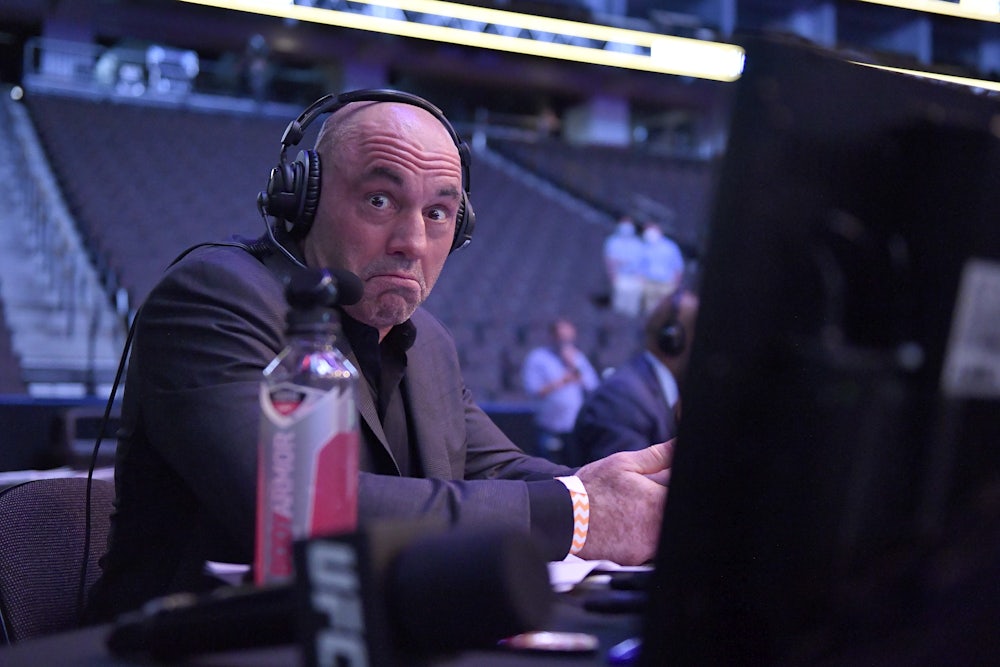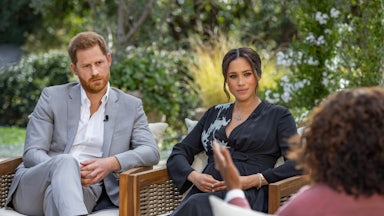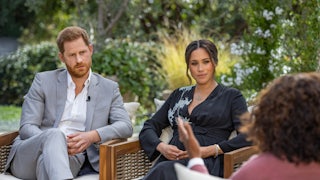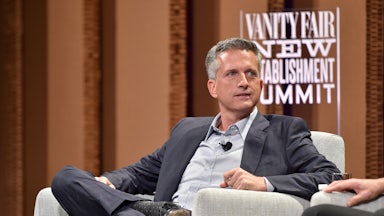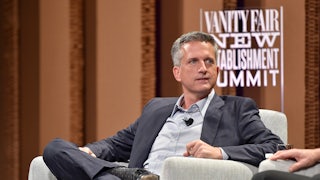On Monday, Neil Young handed the streaming service Spotify an ultimatum in the form of an open letter. “I want you to let Spotify know immediately TODAY that I want all my music off their platform,” he continued. “They can have [Joe] Rogan or Young. Not both.” Young, a polio survivor, is at odds with what is Spotify’s most important exclusive podcast, The Joe Rogan Experience, which has increasingly come under heavy criticism for spreading misinformation about Covid-19 and, in particular, vaccines.
Spotify should have known what it was getting when it signed Joe Rogan to a multiyear, $100 million exclusive contract in May 2020. By that point, Rogan had already established a reputation for transphobia and Islamophobia, had compared a Black neighborhood to Planet of the Apes, and hosted, among others, Proud Boys founder Gavin McInnes and right-wing troll Milo Yiannopoulos. But Spotify was locked in an arms race, trying to gobble up as much real estate in the podcasting world as quickly as possible in an effort to continue growing at a rapid clip. Rogan’s audience was loyal, built-in, and guaranteed to follow him wherever he went. For Spotify, that was all that really mattered.
Naturally, Rogan immediately—perhaps predictably, given the size of Spotify’s investment in him—went even further off the rails. Six weeks after inking the deal, Rogan hosted Abigail Shrier, author of Irreversible Damage: The Transgender Craze Seducing Our Daughters, a book that has been criticized for, among other things, calling the desire to transition the result of a “contagion.” Many Spotify employees were appalled and called on Spotify to remove the episode; Spotify CEO Daniel Ek refused but held several meetings with employees about its decision. In September 2020, Rogan pushed the conspiracy theory that “left-wing people” had been starting the wildfires in Oregon that had devastated huge swathes of the state; Rogan eventually apologized—a rare occurrence—for repeating something he had read without looking into it (a not-so-rare occurrence).
But Rogan’s comments on Covid-19 have been particularly controversial. Last spring, Rogan suggested that young, healthy people should not get the vaccine, telling one listener, “If you’re a healthy person, and you’re exercising all the time, and you’re young, and you’re eating well, like, I don’t think you need to worry about this.” When Rogan himself contracted the virus in the spring, he claimed he was treating himself with ivermectin, a drug that has become particularly popular among those looking for alternatives to vaccines despite the fact that no health authorities in the United States have approved its use. Late last year, he also hosted Dr. Robert Malone, who has repeatedly spread conspiracy theories about the Covid-19 vaccine. His appearance prompted a widely covered open letter signed by hundreds of doctors and health care professionals.
Spotify has weathered these controversies in the past, but Young’s threats might represent the opening of a new phase. The streaming service has built a large audience on the backs of musicians, by offering nearly everything a listener could want for free—or for $9.99 a month without advertisements. Early holdouts, such as The Beatles, Prince, and King Crimson have, in recent years, joined the platform’s massive catalog of talent. Young was also a holdout for a long time, based on his reservations about the service’s sound quality. (Anyone familiar with his memoirs or the Pono—his short-lived, high-end, Toblerone-shaped iPod competitor—knows that sound fidelity is one of his particular passions.) “That’s where people get music,” Young told Rolling Stone in 2019 of his decision to relent. “I want people to hear my music no matter what they have to get through to do it. I’m just trying to make it so they hear a lot more and enjoy it a lot more, but sell it for the same price because music is music.”
Spotify’s ubiquity has given it tremendous market power. It used that power last year to enter the podcast arena—and, as a result, quickly snapped up a series of valuable and influential properties, including The Ringer, Gimlet, and Joe Rogan. The idea was simple: Spotify had already built a huge audience of music fans and, in doing so, had bent the industry to its will. Podcasting was its next phase of growth—and by attracting figures like Rogan, it was also bringing in a valuable advertising demographic of young men.
Spotify’s entry into the podcasting market was like its entry into streaming music, though arguably more distressing. The music world that Spotify entered was already a burnt husk; the company could credibly offer a pittance to musicians and make the case that, though unethical, it was better than nothing; the music industry was broken when Spotify found it. Podcasting, however, was far more independent and competitive; Spotify needed to make big deals and offer princely sums to creators in order to bend that market to its will. (One of those princely sums was offered to a literal prince: According to recent reports, Spotify has been forced to step in and take creative control over Prince Harry and Meghan Markle’s podcast project after the couple managed only a single 35-minute episode after receiving $30 million from the platform.)
But Young represents a remote threat to its core business model, one that could expand if other popular musicians join him on the grounds that the platform has essentially used their work to subsidize vaccine denialism while handing out relative pittances to the artists that put Spotify on the map.
Young, having retained 50 percent of his song catalog—Bob Dylan and Bruce Springsteen are among the many who have sold all of theirs—has less to lose here than most; he has made a tremendous amount of money during his career and, a legend at 76, has little need to preserve future relationships. He can burn his bridges if he wants. Spotify will likely weather his departure, as well. But if more musicians follow Young’s example, it could become a genuine crisis for the platform. For now, there is no sign of such a revolt on the horizon, just another incremental acceleration of the controversies Spotify has been dealing with since it signed Rogan.
Still, it points to the larger problem, which is that Spotify may have gotten more than it bargained for when it made its Faustian deal with Rogan. There is an element of just deserts here: In trying to corner the podcast market—a feat it may still succeed at, by the way—it’s mainly succeeded in having to deal with an unending series of controversies. The big difference, however, is that Spotify should have seen these problems coming long before the gold rush.
